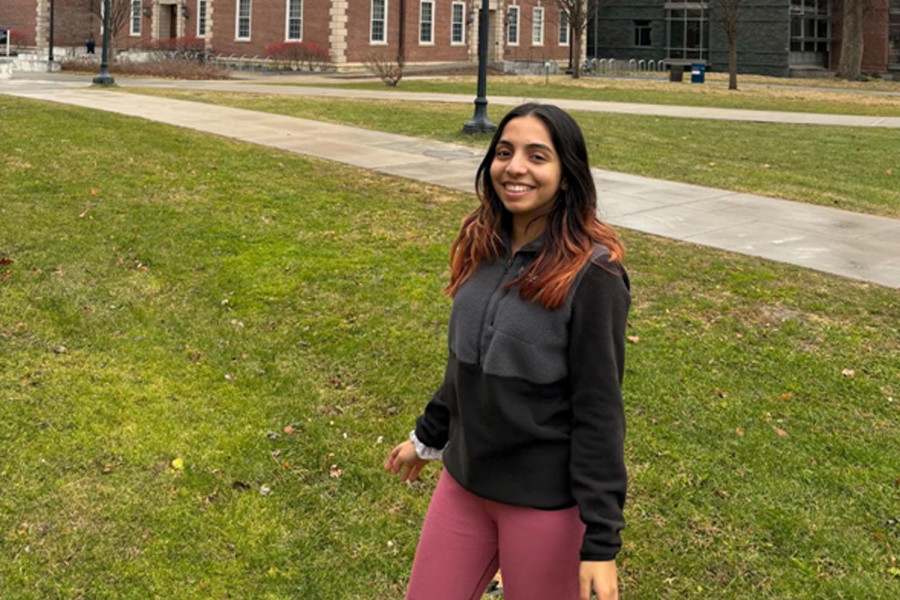National
Nepali students return to the US early fearing Trump’s travel curbs
Some worry that Trump’s immigration policies might make travel between the US and Nepal more difficult.
Ellie Davis
After the US presidential election, a slew of American colleges and universities had instructed international students to return to the United States before Donald Trump’s inauguration on Monday.
Higher education institutions in the US offered these instructions because of Trump’s promise to reinstate a travel ban that affected Muslim-majority countries. The 2016 policy measure affected 17,000 international students, according to Inside Higher Ed, but not any Nepali student.
However, out of caution and following their colleges’ recommendations, Nepali students enrolled in American universities chose to return to the US before the start of Trump’s second term.
The original travel ban listed Kyrgyzstan, Nigeria, Myanmar, Sudan, Tanzania, Iran, Libya, North Korea, Syria, Venezuela, Yemen, and Somalia. According to guidance from Cornell University, a new iteration of the travel ban might also include China and India.
Aarju Poudel, a sophomore at Williams College in Massachusetts, originally from Chitwan, travelled home for two weeks in December during her college break. But she returned to campus before the start of her school’s month-long January term, well ahead of Trump’s inauguration.
“I did not want to take the risk,” she said. “I know it’s not that serious, as long as you’re here legally, but my parents were paranoid.”
On December 6, Williams College Deans instructed international students with plans to travel outside the US in January to return to the country before January 19. Poudel already planned to spend this time on campus so she did not receive this communication, though many of her fellow international students did.
“Based on President Trump’s actions during his first term and his comments during the 2024 campaign, he intends to make significant changes to American border policies soon after taking office,” Williams College Deans wrote in an email to students.
“Some of the proposed changes might affect visa processing, travel protocols or immigration in ways that could hamper return to the US by foreign travellers.”
Before coming to the US, Poudel was not deeply concerned about American politics or the election, because she did not imagine that the American elections would affect her. After going to school in the US, Poudel started following political news more closely.
“I realised how deeply my willingness and my ability to stay in the US is connected with the politics here,” she said. “It goes to show how closely politics influences every sphere of life for international students in the US.”
In addition to Williams, larger, prominent universities such as Cornell, the University of Southern California, Harvard, and the University of Pennsylvania instructed international students to return before Trump’s second term.
Rodin Bantawa from Lalitpur who is currently a sophomore at the University of Pennsylvania, spent her winter break travelling to Panama for a debate tournament but was back in the US ahead of inauguration day for the start of her school’s spring semester, which began on January 15.
The University of Pennsylvania issued its recommendation to students on their International Students and Scholar Services website in early December, stating that international students should “[return] prior to the presidential inauguration on 1/20/2025.”
Bantawa worries that future Trump immigration policies will make travel between the US and Nepal more difficult.
“I don’t think it’s a problem right now as I’m already in the US,” she said. “But if I were to go back to Nepal, I might have a difficult time coming back here.”
Not all Nepali students currently studying in the US share concerns about the Trump presidency affecting their ability to remain in the US.
Arun Sanjel is pursuing his doctoral studies in computer science at Baylor University in Texas. He moved from Kathmandu to the US as a master’s student in 2018 during Trump’s first term, and has no concerns on his ability to travel back and forth between Nepal and the US during Trump’s second term.
“I was [in the US] during the first Trump administration, then I passed through the whole Biden administration, and there was no problem,” he said. “I do my research and I play by the rules, so I don’t think I’ll be affected by the new administration.”
After getting his PhD, Sanjel hopes to stay back in the US to work, either getting green card sponsorship from an employer or applying for a self-sponsored visa.
Unlike Sanjel, Poudel has concerns that changes in immigration policy will impact her ability to remain in the US.
“I spent so much energy to get to the US for a good education. What happens if it’s inhabitable?” she said.
Poudel is unsure whether she wants to stay in the US. after receiving her bachelor’s degree, but the political climate will affect her decision, she said.
“For now, it’s quite simple for me because I study. But after graduation, I’ll have to decide, and I don’t know yet what I'll do,” she said. “The political climate is definitely a big factor.”




 16.12°C Kathmandu
16.12°C Kathmandu















